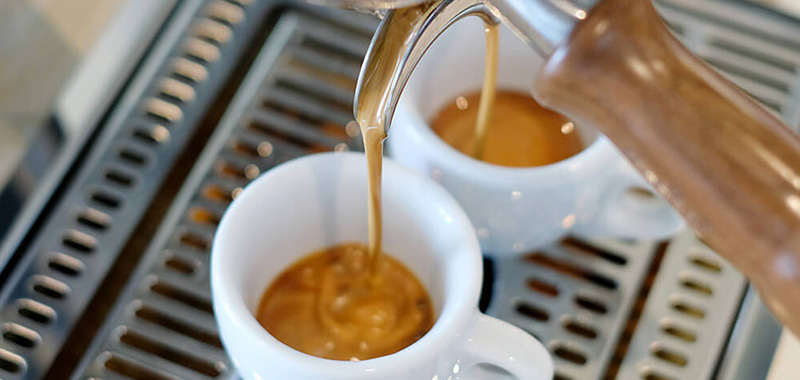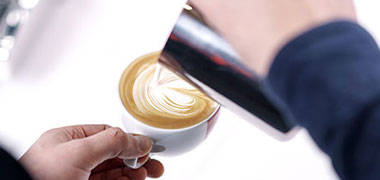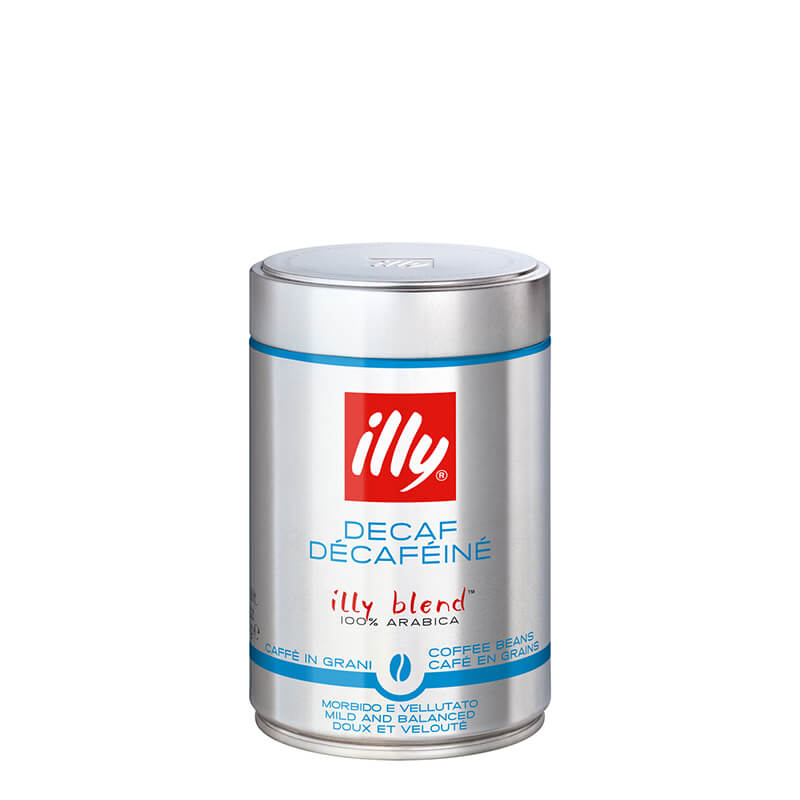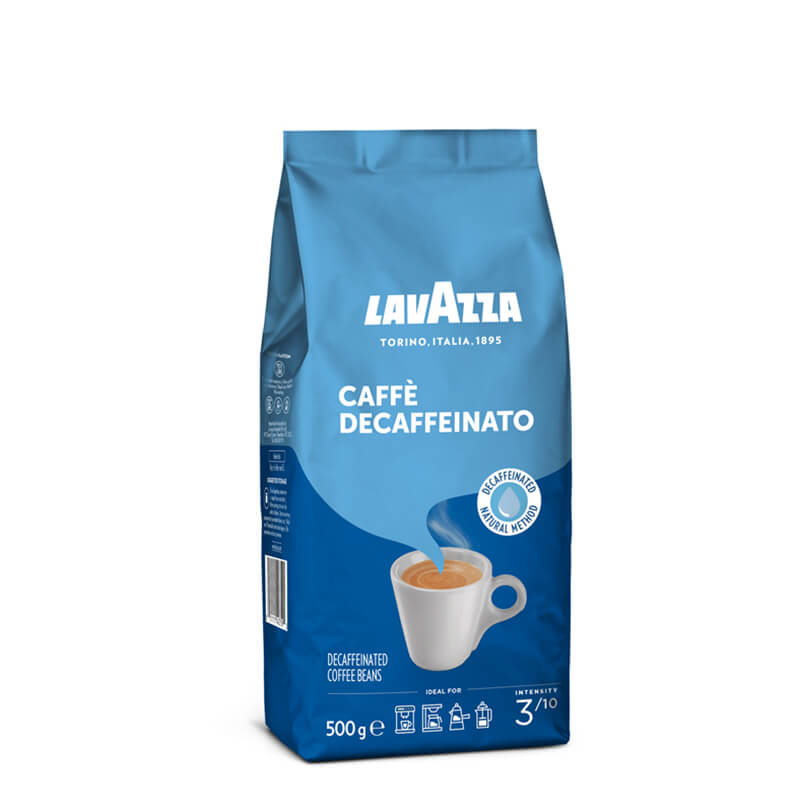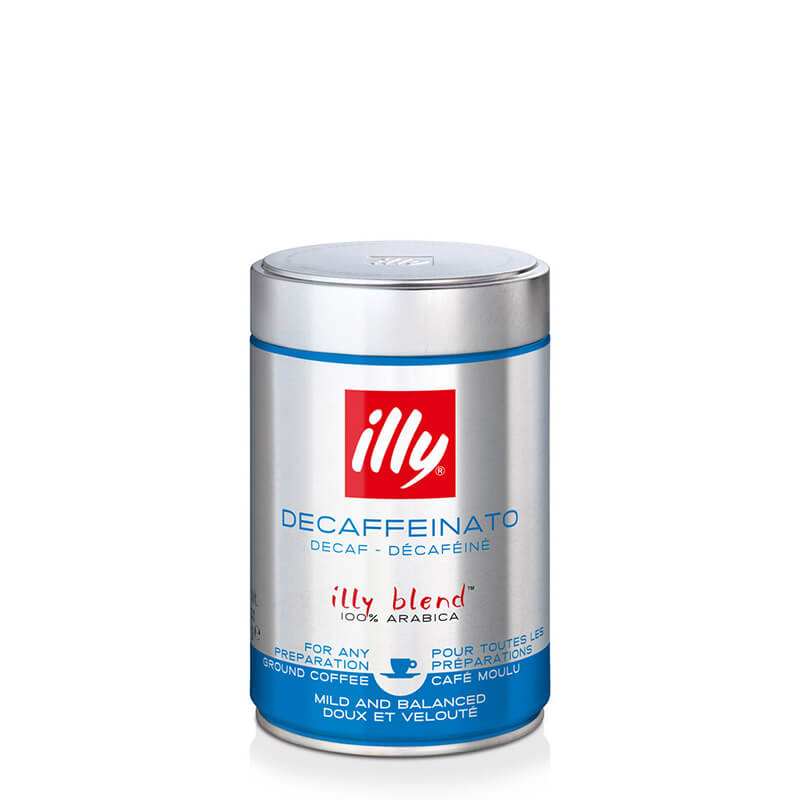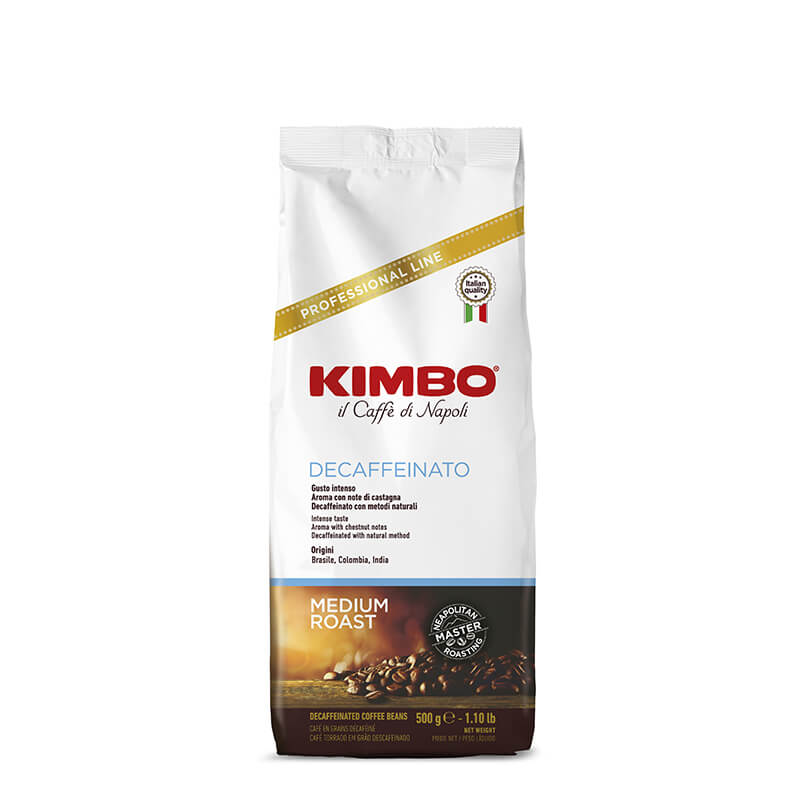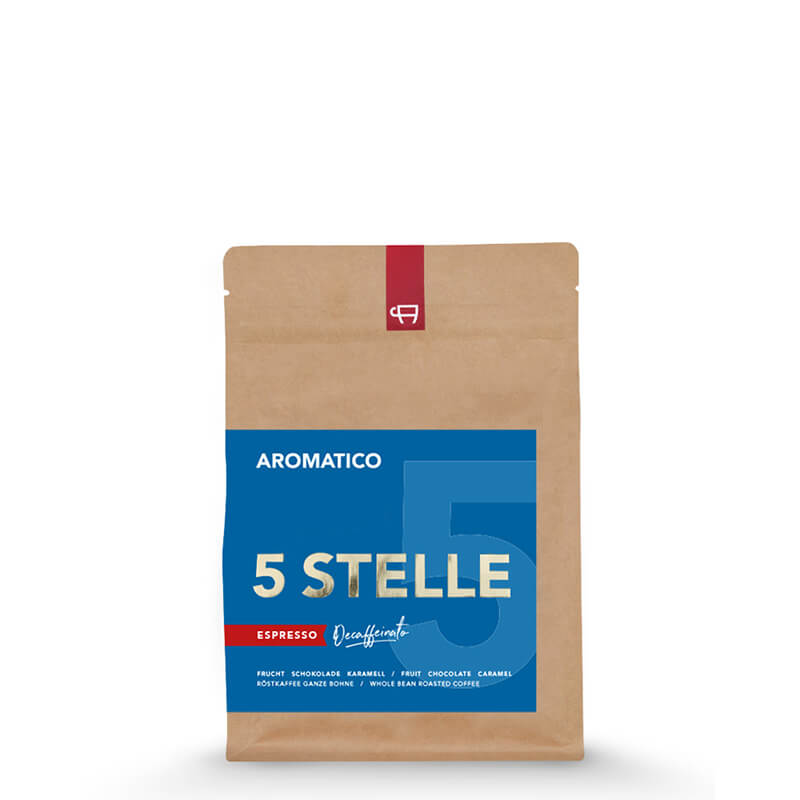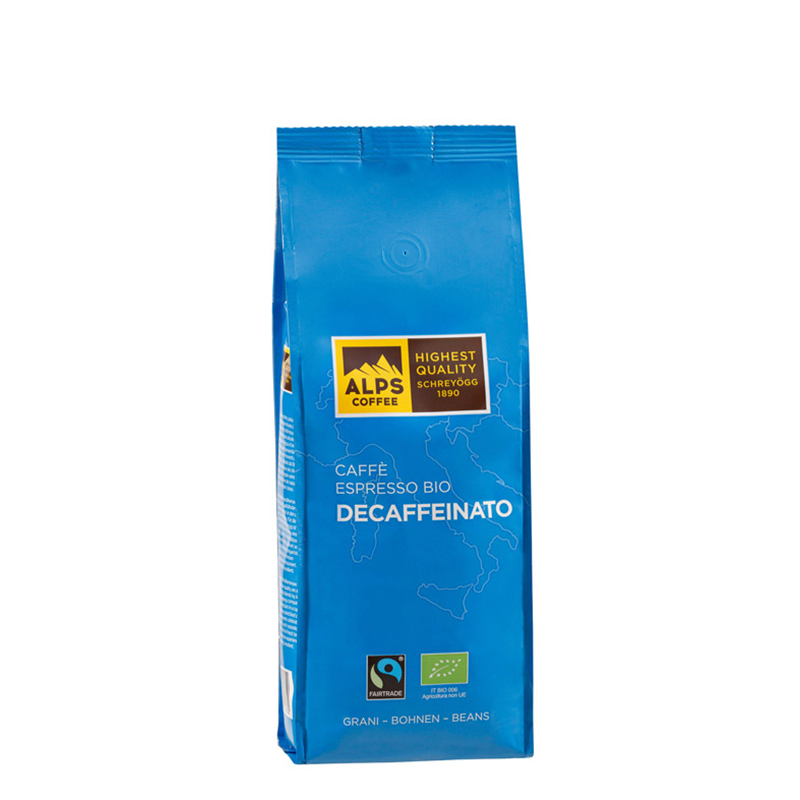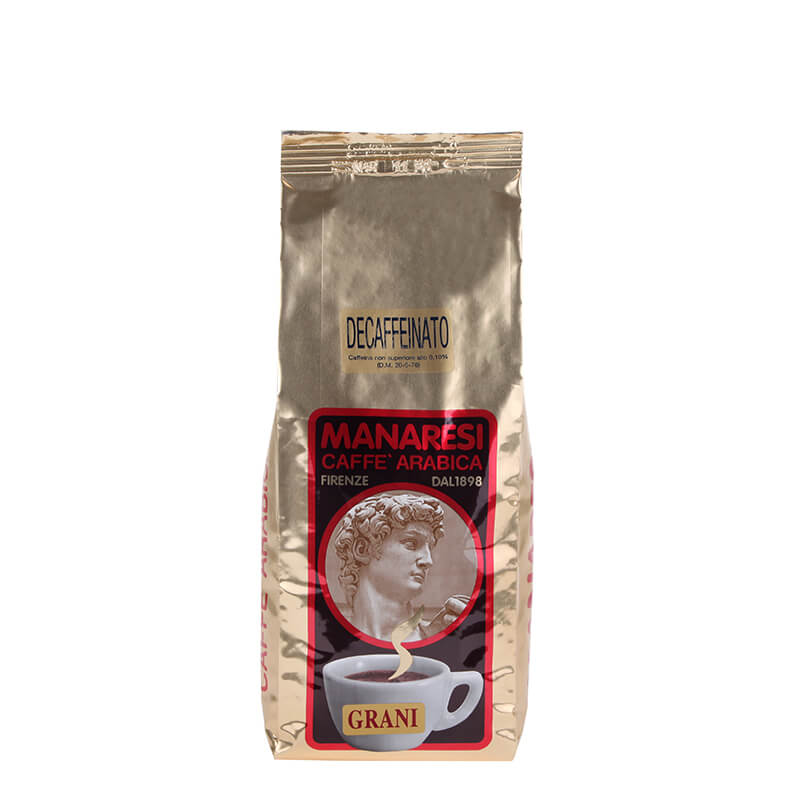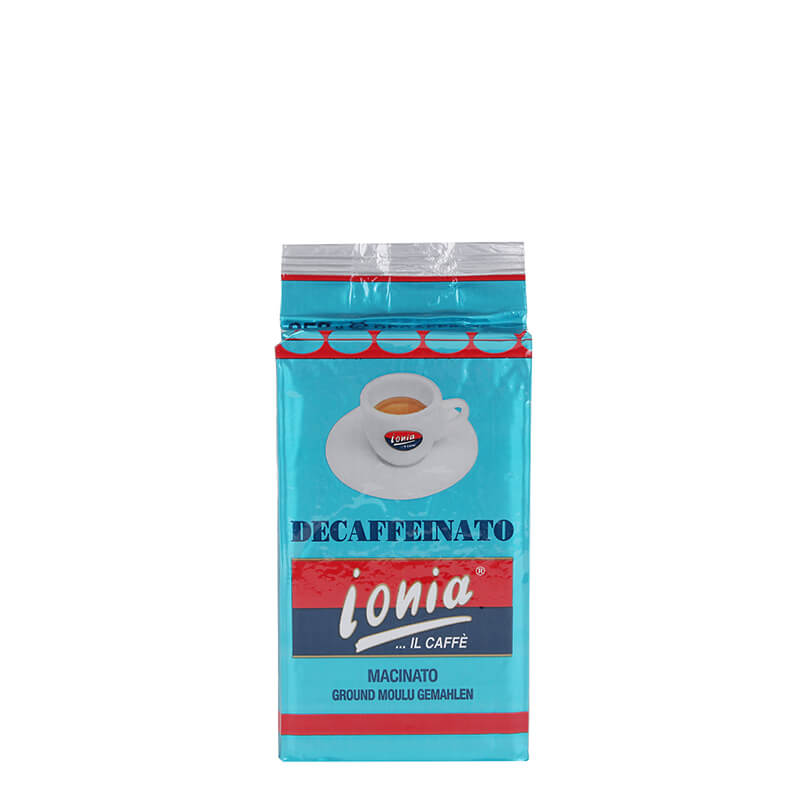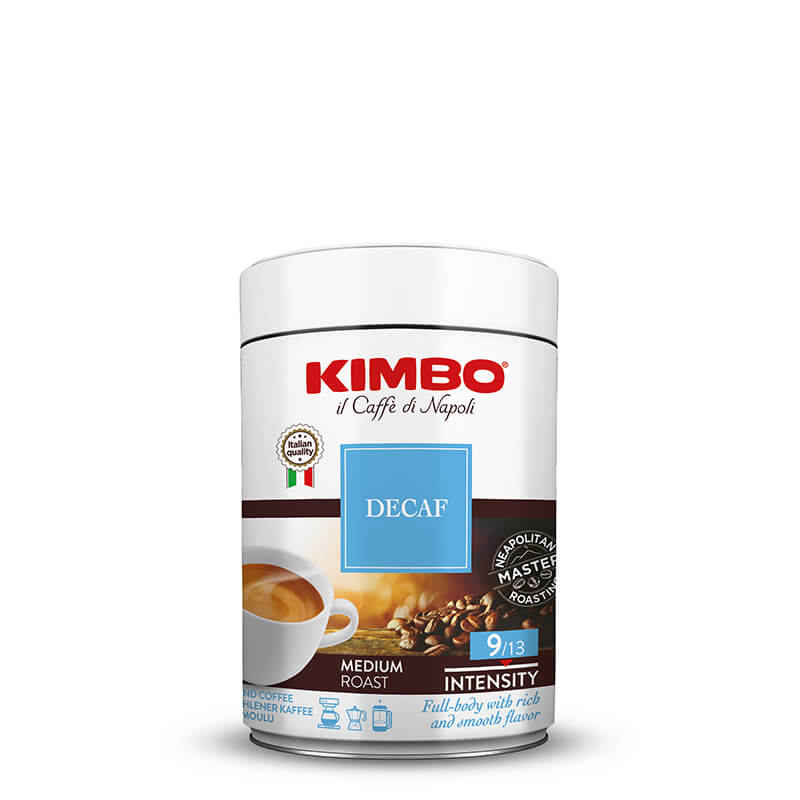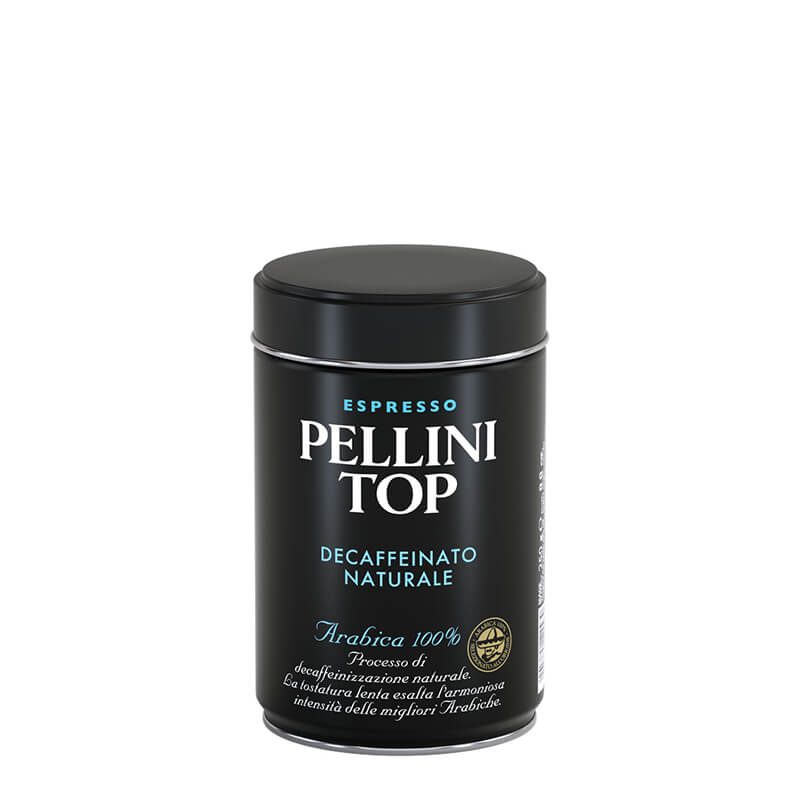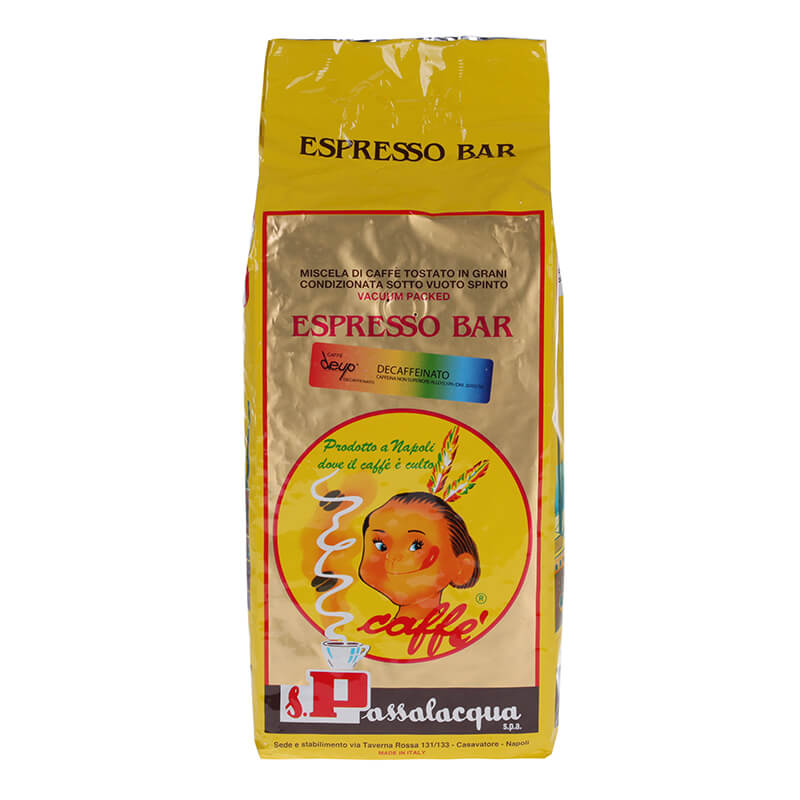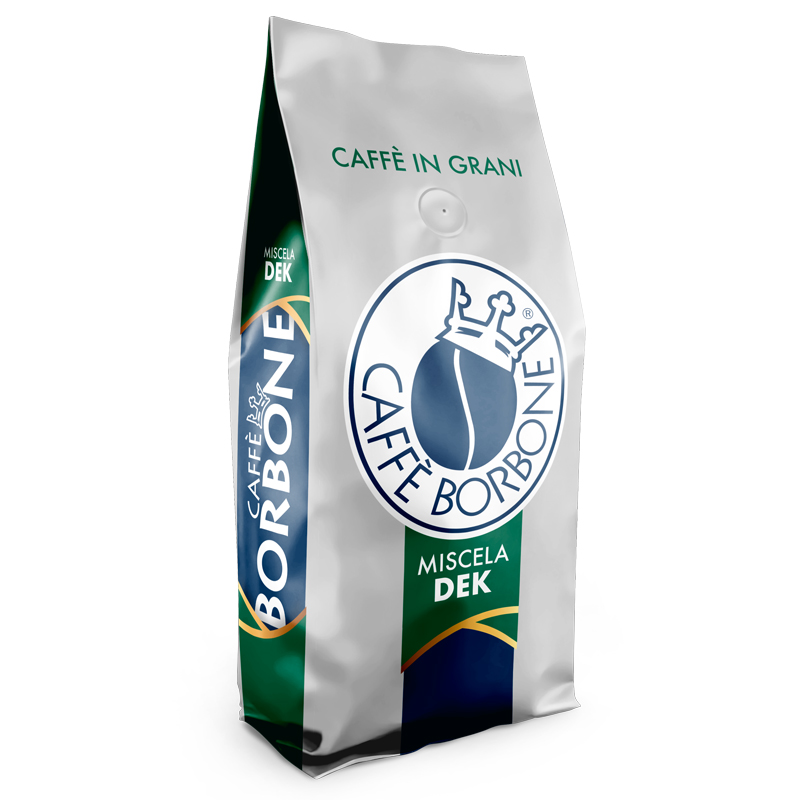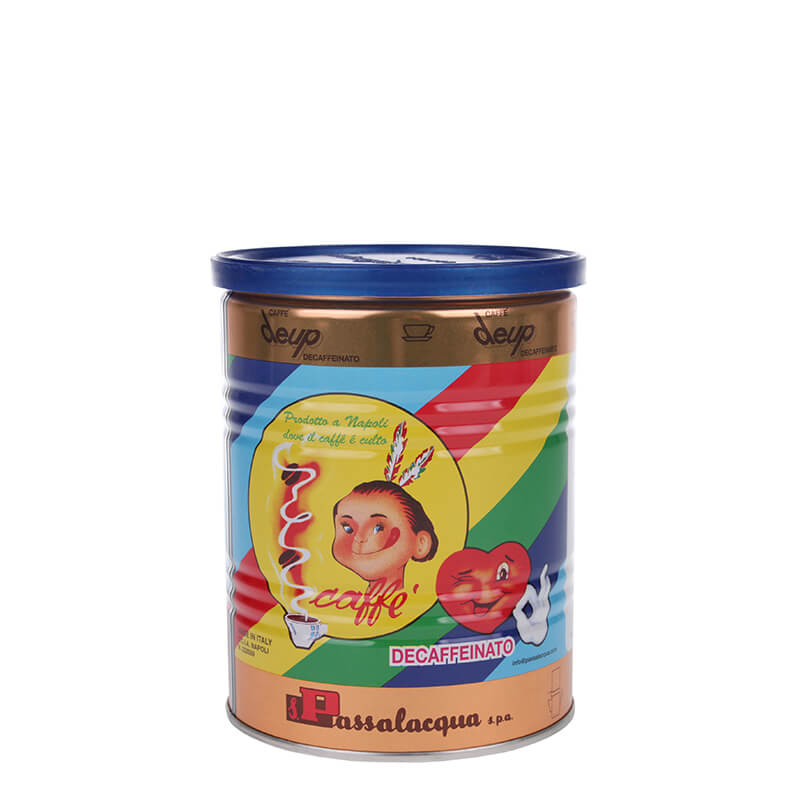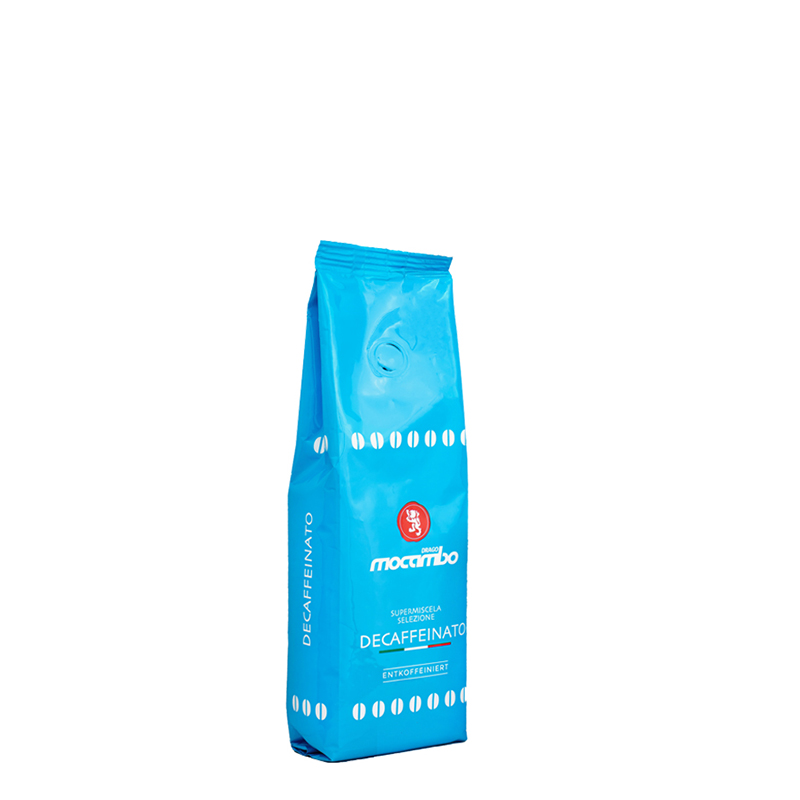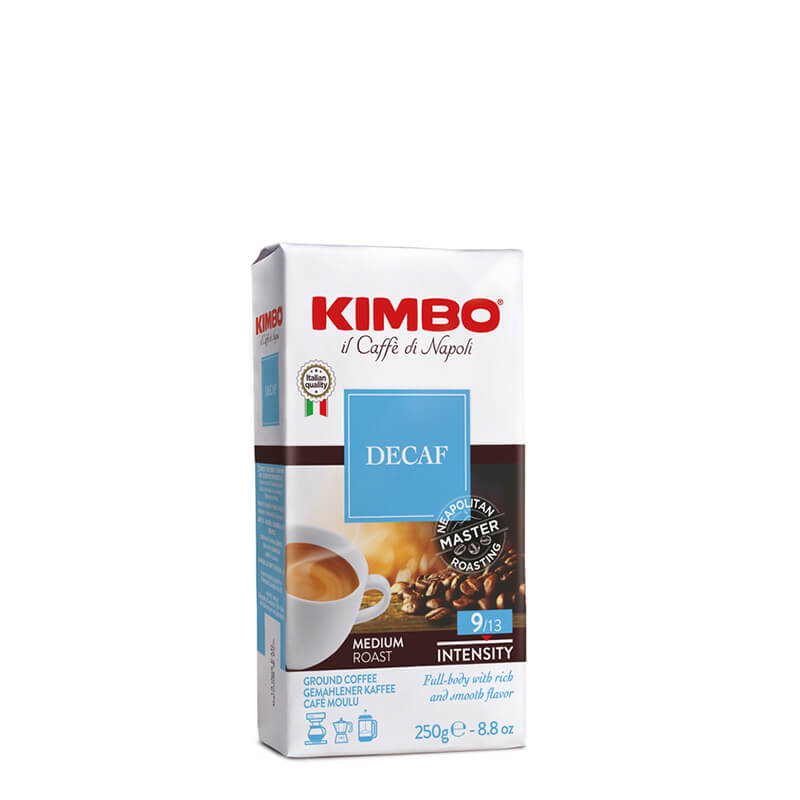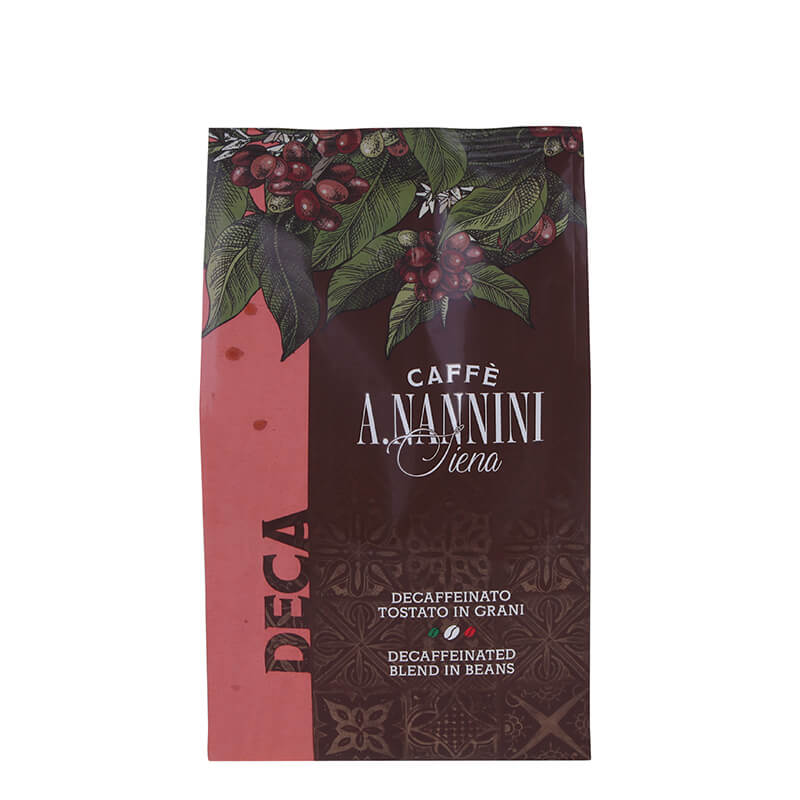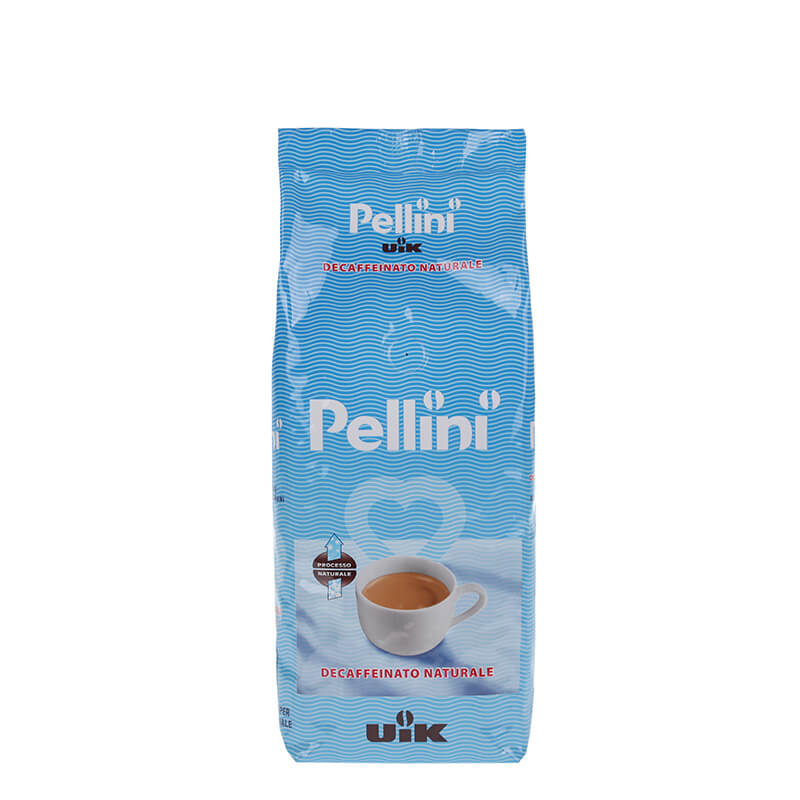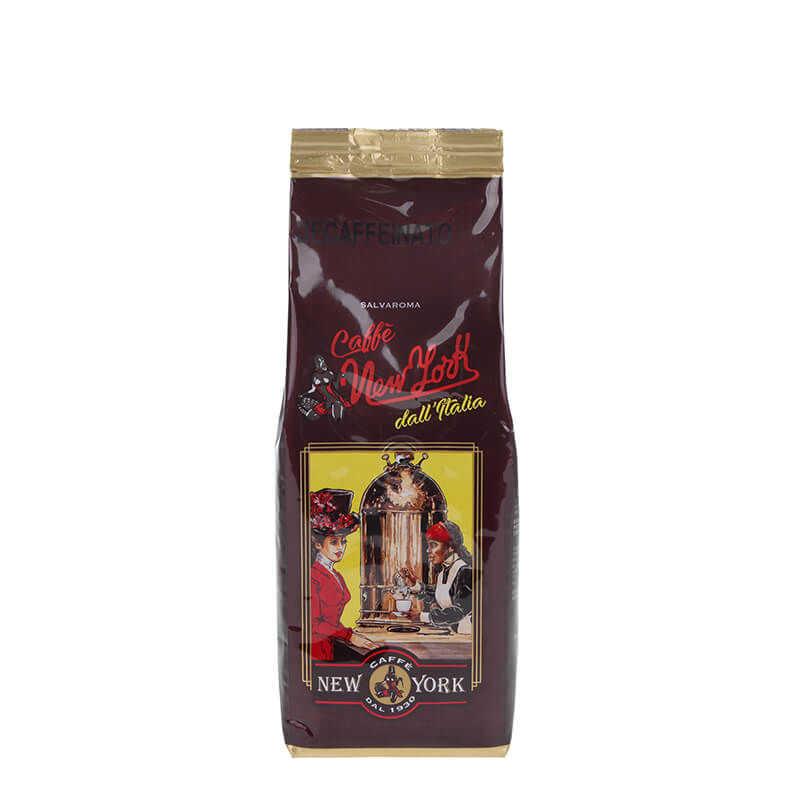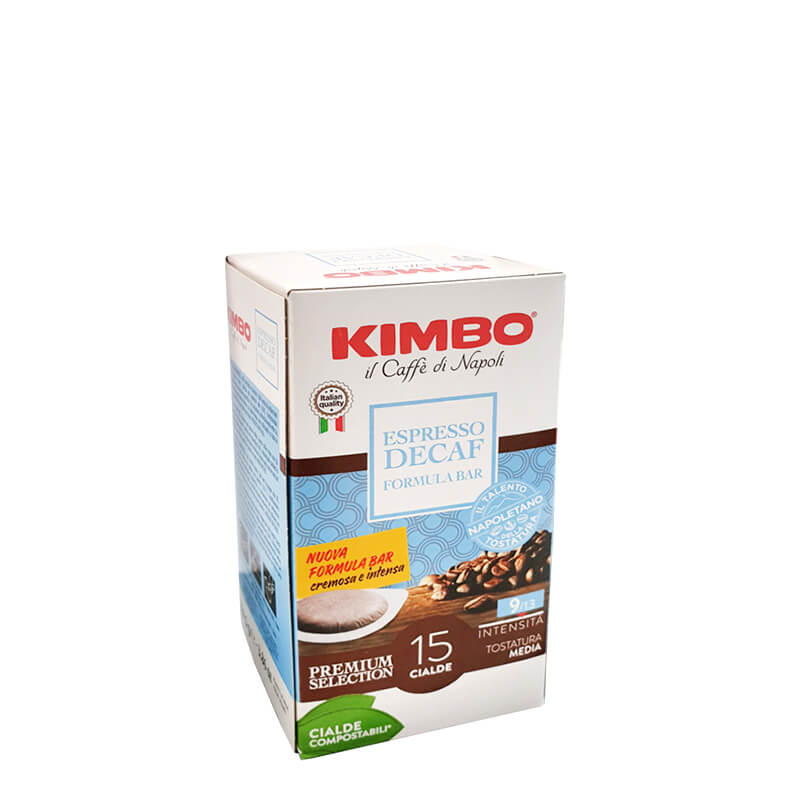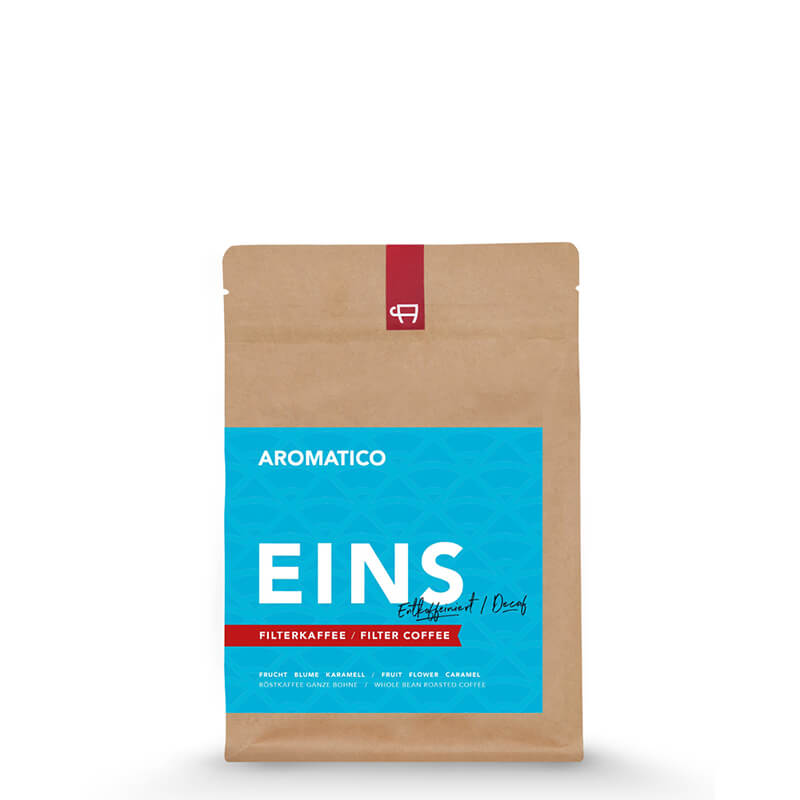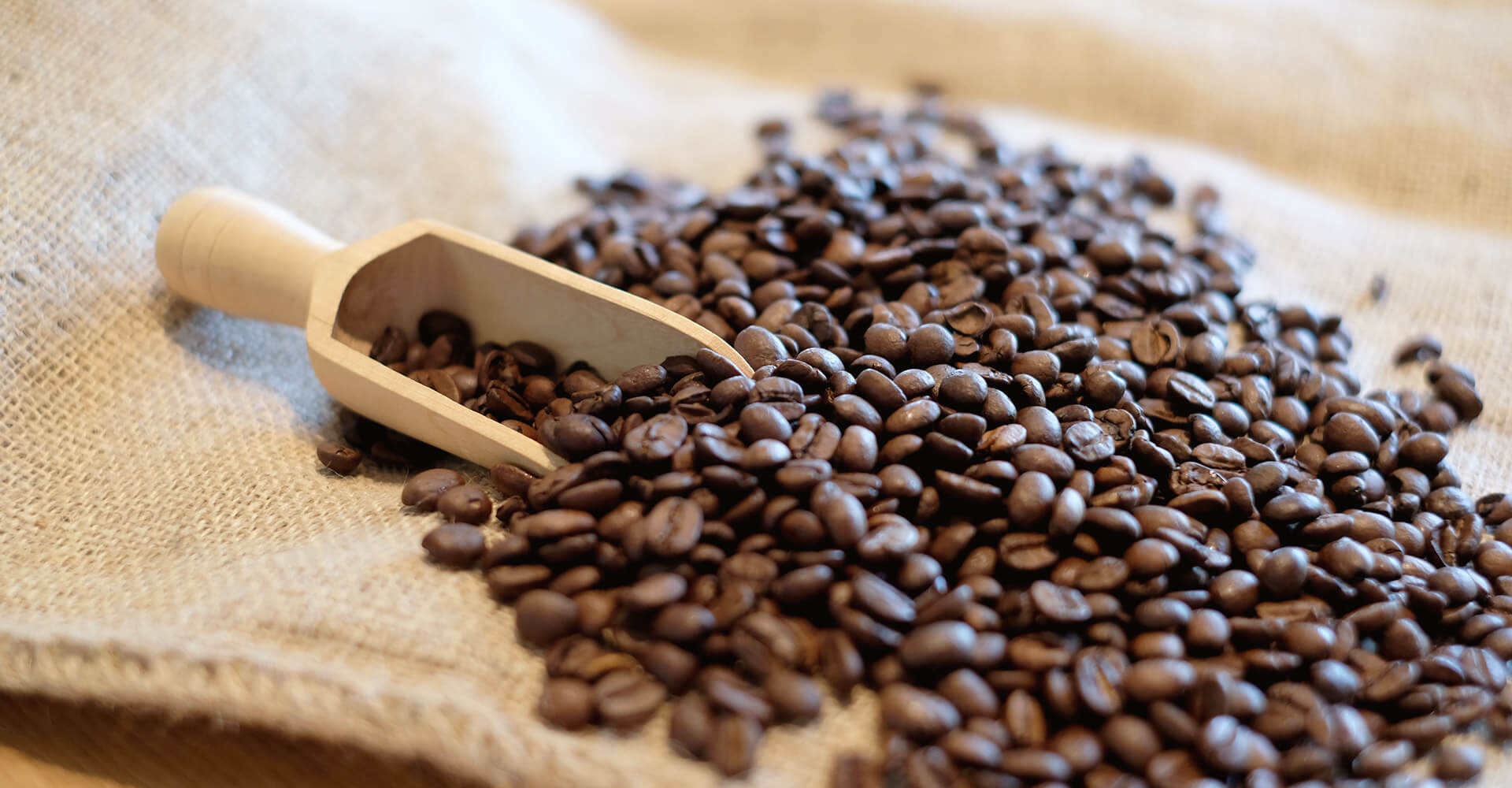

Aromatico
5 Stelle Decaffeinato
whole bean
/
250 g
€6.40*
€6.90*
(7.25% saved)
0.25 kg
(€25.60 / 1 kg)
WHAT ACTUALLY IS CAFFEINE?
Caffeine is a substance found in numerous plants. A natural plant protector against predators such as insects, caffeine is found primarily in coffee, tea, guarana, mate, kola nut and cocoa. Extracted from plants, caffeine is in white, rather bitter-tasting crystalline powder. In the food and pharmaceutical industries, caffeine is often used in beverages and medications to take advantage of its stimulating effects. Chemically, caffeine belongs to the methylxanthines.
DECAFFEINATION PROCESS: HOW IS ESPRESSO DECAFFEINATED?
Industrial decaffeination was invented over 100 years ago by Ludwig Roselius. The Bremen merchant wanted to reduce the caffeine content for health reasons while retaining the full flavor of the popular bean. The company he founded, Kaffee HAG, was long regarded as the epitome of decaffeinated coffee. Since then, decaffeination processes have been continuously developed. The basic principle is very simple and essentially consists of the following three steps: Moisten coffee beans, extract caffeine, dry coffee beans. In principle, the green coffee is always decaffeinated in all decaffeination processes. The challenge in decaffeination is to extract the caffeine from the unroasted coffee beans without losing the aromatic substances and oils of the espresso bean.
First, the unroasted coffee bean is moistened in a water bath or with the aid of steam. This makes the cell walls more permeable. Next, a processing aid is added that dissolves and binds only the caffeine, if possible. This extraction agent is then removed again - and with it the caffeine. Depending on the process, the caffeine can be separated from the solvent and used separately. This extraction process is repeated until the caffeine content is reduced to a maximum of 0.1 percent. This is the maximum value prescribed in the EU for decaffeinated coffee. Finally, the coffee beans are dried again and processed in the regular way. For a decaffeinated espresso, this means that the beans are roasted for about 20 minutes to become particularly dark and aromatic.
Depending on the extraction agent used, there are different decaffeination processes. The processing aids ethyl acetate, dichloromethane, carbon dioxide (CO2) and water-based extraction are approved. The CO2 process is particularly popular. To make a decaffeinated espresso, CO2 is placed in a so-called supercritical state. At a temperature of over 32.15 °C and a physical pressure of 76 bar, CO2 develops the density of a liquid, but is still gaseous. In this form, CO2 can dissolve the caffeine from the bean very quickly and selectively. All other ingredients are preserved, and the caffeine extracted from the bean can be reused. According to BIO quality, decaffeinated BIO espresso may only have been decaffeinated using the water method or the CO2 method.
ESPRESSO WITHOUT CAFFEINE - WHAT IS BEHIND THE TERM DECAFFEINATED ESPRESSO?
The processes by which caffeine is removed from espresso beans are numerous. By decaffeinating the espresso beans, the effect of caffeine is reduced to an absolute minimum when drinking decaffeinated espresso. Decaffeinated beverages are often advertised, but is "decaffeinated" coffee actually completely free of caffeine? In a nutshell: No. Even though many people usually use decaffeinated espresso for the term decaffeinated espresso, this is not entirely correct, because even decaffeinated coffee is not completely free of caffeine. According to EU food law, decaffeinated espresso may contain a residual caffeine content of 0.1% in order to be officially considered decaffeinated espresso. This means that decaffeinated coffee is not caffeine-free, but contains a very small amount of residual caffeine.
THE BENEFITS OF A DECAFFEINATED ESPRESSO
Are you looking for decaffeinated coffee beans for fully automatic coffee machines? Understandable, because many coffee fans experience rather undesirable effects after enjoying a fresh cup of coffee. In addition to stomach upsets, inner restlessness and difficulty falling asleep, many consumers experience rather undesirable effects after a cup of espresso with caffeine. Since they often do not tolerate the caffeine of the espresso beans well. All those who have these complaints after a cup of espresso should buy decaffeinated espresso. Decaffeination of espresso beans removes the caffeine from the beans. Thus, the stimulating effect of caffeine is also almost completely absent in decaffeinated espresso. Sleepless nights and inner restlessness are therefore no longer an issue.
Another advantage of an espresso with little caffeine is that coffee enjoyment is still possible later in the evening without having to fear a sleepless night. No matter whether for a pure espresso pleasure, in a dessert after dinner or also for the preparation of a delicious coffee cocktail, decaffeinated espressos are perfectly suitable.
DECAFFEINATED ESPRESSO: THE TASTE
Like regular espresso, decaffeinated espresso offers a wonderful range of flavor nuances for the coffee gourmet. Here, it is primarily the roast and the specific bean blend that provide the individual flavor notes. The variety of flavors ranges from a round and mellow mildness to a tangy strong spiciness. Arabica beans provide a smooth, balanced taste. A proportion of Robusta beans brings additional spice and a dense crema to the espresso. The connoisseur:inenn can pick out numerous aromas, ranging from nutty to fruity and floral to sweet and chocolaty.
Of course, the fineness of preparation also plays an important role in decaffeinated espresso. Only extra-fine ground coffee, the ideal quantity and temperature, and the perfect pressure during preparation make espresso enjoyment perfect. But it is not only decaffeinated espresso, freshly prepared from beans, that provides the inimitable coffee shot. Decaffeinated espresso ground, in capsules or pods also offers the wonderful aroma of real espresso decaffeinato.
CONCLUSION: THE CHOICE OF DECAFFEINATED ESPRESSO CONTINUES TO GROW
In today's world, people are increasingly looking for less caffeine in their daily lives. This is because coffee has long since extended its existence as an exclusive breakfast drink. An espresso provides coffee lovers with pleasurable moments throughout the day. Whether after lunch, in between meals at the office, or after an excellent meal in the evening - espresso always provides the proverbial icing on the cake. Those who want to reduce or limit their caffeine consumption as part of a conscious diet rely on decaffeinated espresso. Without the caffeine, the espresso is a treat even late at night.
Due to the given different benefits of decaffeinated espresso, the supply of delicious espressos with minimal caffeine is also increasing with growing demand. Classic coffee brands such as Illy offer decaffeinated espresso, but a Lavazza decaffeinated espresso also finds a place in our range. Or even roasters like Mocambo, Manaresi or Kimbo offer an espresso decaffeinato. Whether for the portafilter, the espresso maker or the fully automatic machine, as espresso ground or whole bean a the decaffeinato coffee beans are available in a wide variety. Browse through our offer and take the chance to buy decaffeinated coffee!

